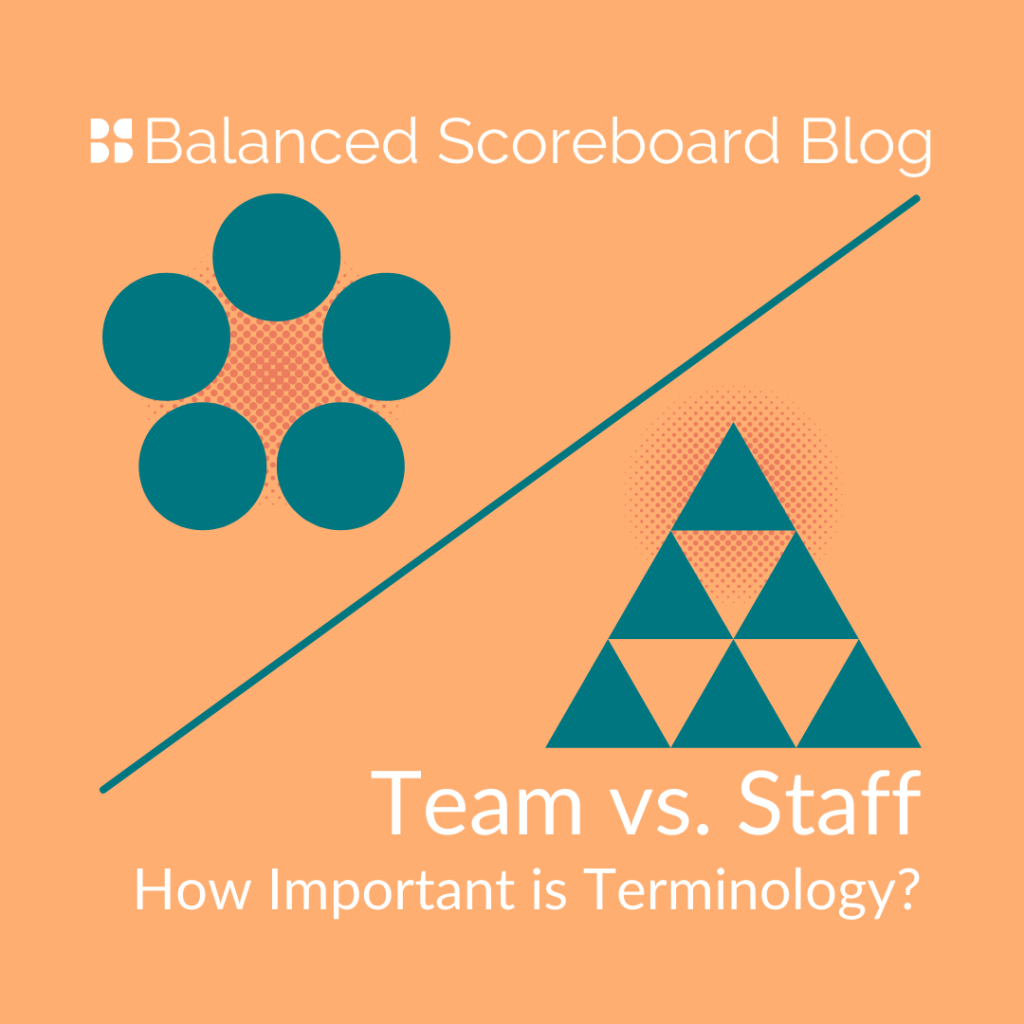Team vs. Staff
How Important is Terminology?

“Sticks and stones may break my bones but words can never hurt me” — we all learnt this as children, but anyone who has ever been called an unpleasant name can tell you it’s simply not true. Language is one of the most powerful tools human beings use. We are as sensitive to its subtleties as we are vulnerable to its hostilities. You don’t need decades of research into socio-linguistics, anthropology, psychology and neuroscience to tell you that, but you can read all that if you want to.
In a digital world, our society is increasingly built on words. A client’s first interaction with your company is likely to be online, and the way they respond will be influenced by how you represent yourself in the written word. If you think this is an exaggeration, consider the massive amounts of research and development major brands put into their slogans – and the impacts those slogans can have. Nike went from worldwide sales of $877 million in 1988 to $9.8 billion in 1998, all on the back of the “Just Do It” campaign.
The irony is, despite accepting the importance of consumer-facing language, businesses can be much less sensitive to the language they use internally. If you ask a CEO whether they think their slogan is important, the answer will be “yes”. If you ask the same person whether you should call your workers “staff” or “team members”, you’re likely to get a shrug.
But, does it really matter? By the end of this article, you’ll understand how important language choices like this can be, and also understand the very real human effects they have.
What’s wrong with “staff”?
Try this as a thought experiment: think about something — anything at all — without using words. It’s impossible! Words are literally the building blocks of thought (pardon the pun). Cutting-edge neuroscience research suggests this can have profound effects on the ways we process reality and how we behave. According to Andrew Newburg and Mark Waldman in their book Words Can Change Your Brain, simply focusing on a positive word stimulates the parts of the brain that motivate action.
Furthermore, apparently interchangeable words can carry starkly different associations. Think about the word “staff”. What does it bring to mind? It’s hard to dismiss the following connotations:
- Worker/subordinate – I am a paid employee. I follow the directions of my supervisors. I do not have any real influence.
- Value for pay – I work for a wage.
- Differing agendas – The organisation wants to get its money’s worth and I want to get money for my worth.
- Replaceability – I am one of many workers. My individual importance may not necessarily be valued by the organisation.
These may not be the ideas business owners hold or want their people to take away, but the word “staff” cannot escape its core definition: a person hired to do a job.
Conversely, direct feedback from “team members” confirms the term “team” creates positive thoughts when reinforced consistently through the organisation. This positivity then translates into engagement and action, in line with Newburg and Waldman’s findings. How though?
Why is “team” better?
The Oxford Dictionary describes a “team” as “a group of players who come together to achieve a common goal”. Consider the use of “team” in the sporting context and the power it has to evoke loyalty, passion and performance in players. A team member is invested. They do not want to let their teammates down.
The use of “team” creates positive thoughts, including:
- Purpose – I am part of something bigger and I have a specific position to play.
- Contribution – What I bring to the team matters.
- Belonging – This organisation wants me and values me.
- Security – The organisation cares about my well-being.
- Engagement – The team needs me to perform in order to be its best.
- Goal connection – I care about, and contribute to, the outcomes of my team.
- Motivation – I want to see my team succeed.
As you move from an attitude of “staff” to “team” in your organisation, you will be able to unleash the power of team engagement and reap the benefits accordingly. Your organisation can produce team members who know what they need to do, who want to see the team succeed and who can see how their work fits into shared objectives.
What else can I do?
The lesson we can learn from this is that subtle changes have major effects on employee engagement. Building a culture where your people contribute because they share your goals is a shortcut to supercharging productivity. Reach out to the team at Balanced Scoreboard for more insights into how you can enhance team engagement, performance and job satisfaction.
Until then, go to www.balancedscoreboard.com.au so you can view or book a demonstration of the Balanced Scoreboard — an effective team performance and talent management tool with purpose, not just a gimmick that looks good on paper. On top of all this, the creators of the Balanced Scoreboard offer an array of complementary and tailored services to meet your business needs.
Balanced Scoreboard® is a registered trademark of Altitude Innovations © 2021. All rights reserved.